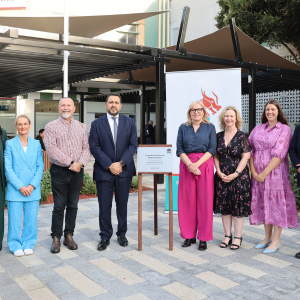The Hon Mark Butler MP
Minister for Health and Aged Care
Australians will soon be able to count on better care and treatment for attention deficit hyperactivity disorder (ADHD) right across the country with the release of a new clinical practice guideline.
ADHD is the most common neurodevelopmental disorder, affecting around 800,000 Australians, including approximately 281,000 children, aged 0-19 years.
ADHD can have lifelong impacts on individuals, their families and community, but early diagnosis and quality treatment can greatly improve individual outcomes.
The Australian Evidence-Based Clinical Practice Guideline for ADHD provides a summary of scientific evidence and advice on the identification, diagnosis, support and treatment options for ADHD, including options with, and without, the use of medication.
The Australian Government provided $1.5 million to the Australian ADHD Professionals Association to develop the Guideline with a focus on everyday functioning and quality of life based on age, gender, culture, setting and geography.
It will help inform clinicians, including medical and allied health professionals, nurses, pharmacists, and those involved in the support of people with ADHD such as educators and families, to drive improvements in care across Australia.
Quotes attributable to Minister Butler:
“This Guideline sets the benchmark for best-practice evidence-based assessment, treatment and support for people living with ADHD, and also lays a roadmap for ADHD clinical practice, research and policy.
“There are 111 clinical recommendations addressing the ADHD journey across a person’s lifespan, from identification and diagnosis to an evolving support plan and information for family, friends, employers, and others in their life.”
Quotes attributable to Minister McBride:
“This Guideline could be a game-changer for people living with ADHD, especially as it is based on the best available evidence, including multidisciplinary clinical expertise and input from people with lived experience.
“Earlier diagnosis, better treatment and care will help improve the lives of people living with ADHD so they can reach their full potential.”








